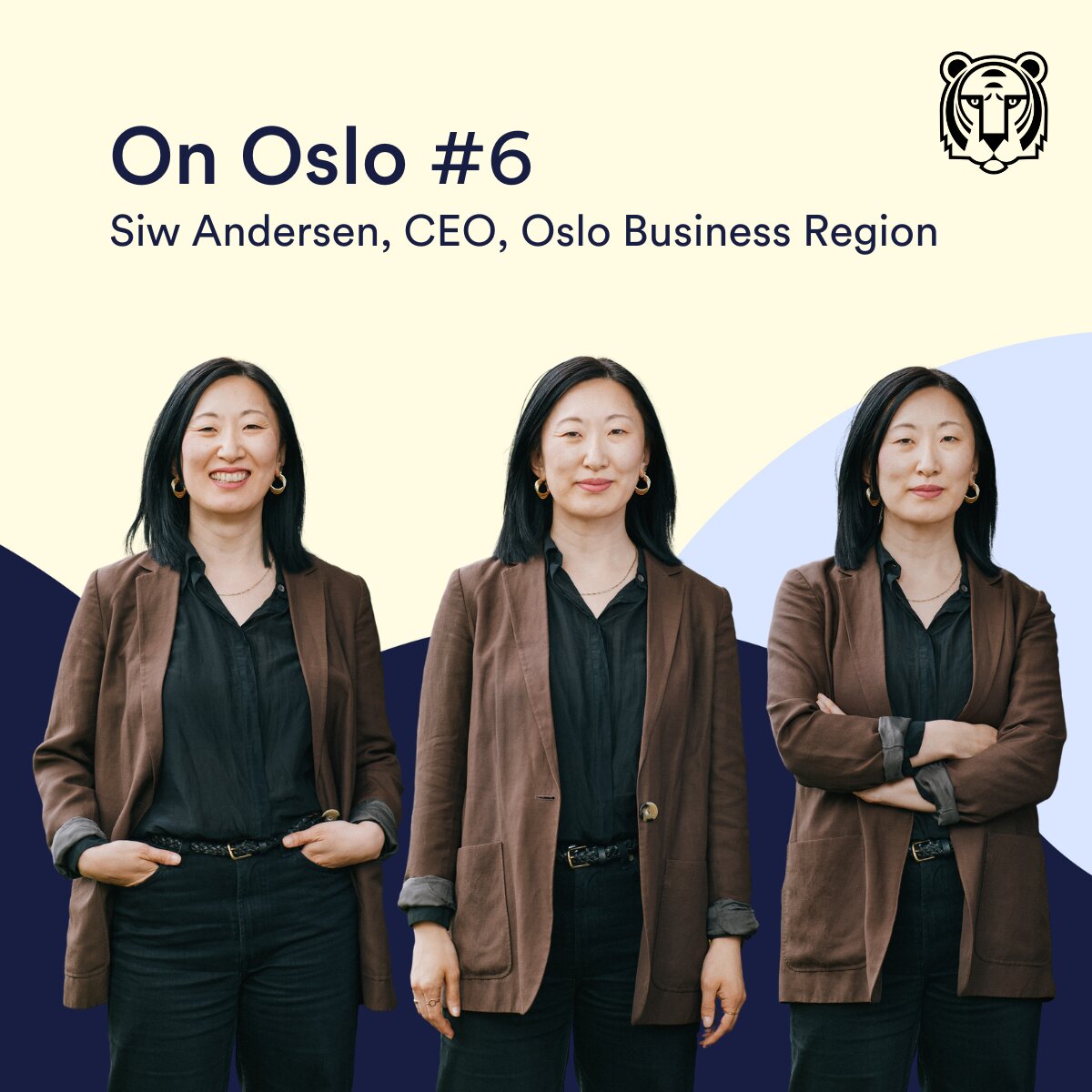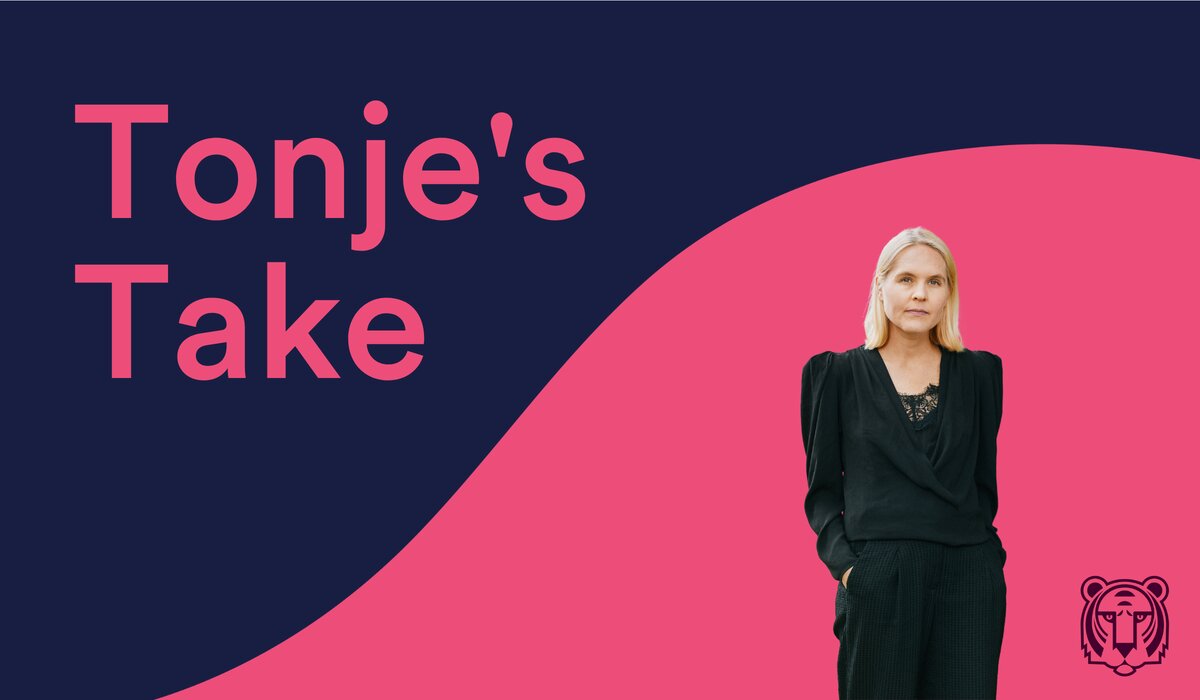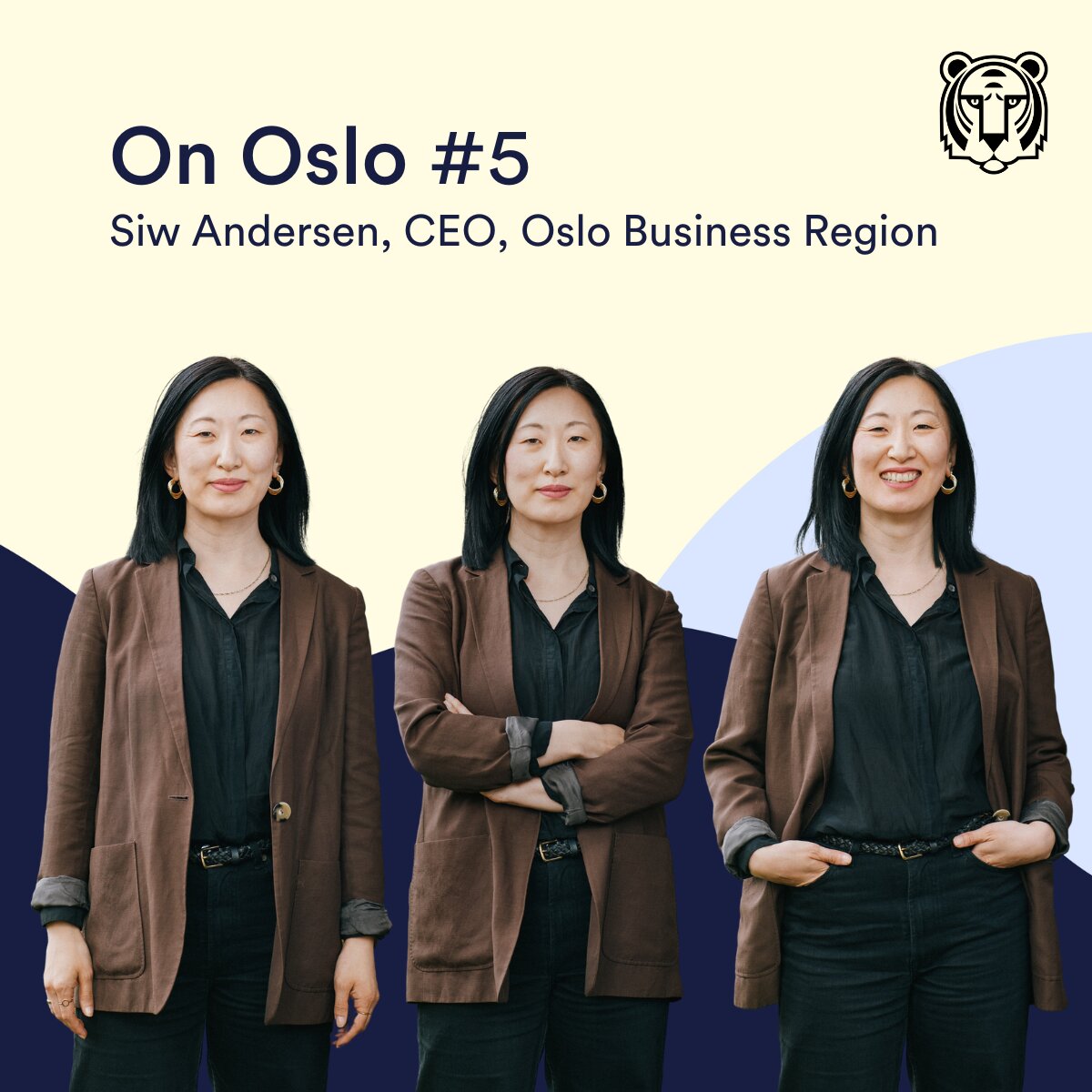On Oslo #4
I'm Siw Andersen, CEO, Oslo Business Region. On Oslo is a series where I’ll share my thoughts on what Oslo needs to succeed globally. This one’s about using Oslo’s unique strengths to unlock Norway’s startup potential.
I’m frequently asked by international investors, companies or public officials:
“What makes Oslo unique?”
For me, three things stand out – our commitment to sustainability, strong digital competence, and a rapidly growing ecosystem. But first, let’s take a look at some numbers.
Oslo's strengths
Since 2012, Oslo has doubled the number of startups and scaleups and tripled employment in these companies. According to Dealroom, businesses in Oslo are now valued at $717.5 billion/ NOK 7.67 trillion in enterprise value. This marks a nearly 4,000% increase since 2015, when the value stood at NOK 192.6 billion.
Oslo is still a young city when it comes to fast-growing startups. Historically, we’ve been anchored in traditional industries. This brings many challenges, but also big opportunities for Oslo, that, in my view, still hasn’t tapped into its full potential.
1. In recent years, the city has made its mark on sustainability, not just through technologies that address environmental and climate issues, but also through ambitious initiatives such as the City of Oslo’s climate budget. Recently, Oslo was also ranked one of the greenest cities in the world for personal transport, second to Amsterdam.
2. Oslo has a highly educated population with strong digital skills. Each year, there are around 88,000 students in Oslo – 1 in 10 residents. This represents enormous untapped potential: the knowledge we generate here can lead to commercial ventures the world needs and the market wants to pay for.
3. The past few years have seen the rise of a robust ecosystem for entrepreneurs and startups in Oslo. The city now hosts over 50 incubators, accelerators, and co-working spaces, offering support to founders at every stage – from ideation to scaling. Examples include StartupLab, The Factory, Ungt Entreprenørskap, and players like Aleap and Oslo Cancer Cluster, both of which featured on the Financial Times Top 100. Investors such as SNÖ, Sandwater and Alliance VC are actively backing early-stage companies.
Oslo must succeed as startup capital – for all of Norway
Oslo is the only city in Norway with the scale and infrastructure to compete with global startup hubs. So, what must we do for Oslo to truly succeed as a startup capital? Being a good startup city isn’t just about internal strengths. Oslo’s success hinges on international talent and capital.
At Oslo Business Region, we estimate that around 20% of employees in Oslo-based startups or scaleups are international. And between 50–80% of all capital invested in Norwegian startups and growth companies has come from abroad in the last five years.
Right now, one of my biggest concerns is the sharp decline in investment compared to the previous quarter. This is a major concern, echoed by voices like Ketil Holmefjord and Trond Riiber Knudsen in Dagens Næringsliv and Shifter. Neighbouring countries like Sweden and Denmark have not experienced a similar drop.
New report on the ecosystem’s impact
A recent report by Menon Economics and Oxford Research explores the development of the startup and scaleup ecosystem in Oslo and Akershus. It highlights three key challenges we must address in the next phase: commercialising research, access to risk capital, strengthening networks, particularly between entrepreneurs, researchers, and corporates.
These findings are reinforced in the recently released Open Innovation Report 2025 by Tobias Studer Andersson from Sopra Steria.
5 focus areas to unlock Oslo’s potential
As outlined in our response to the Gründermelding white paper last year, Norway must set an ambitious vision supported by effective tools. Are we a startup nation? Not yet. Must we become one? Without a doubt (!). Especially if we’re serious about driving the green shift and preserving our current welfare model.
1. Commercialisation of Research
Norway produces world-class research, particularly in cancer. This could form the basis of many knowledge-driven companies. One example is Zelluna, which is developing cancer treatments that use the body’s own immune system. To unlock this potential, we need closer collaboration between researchers and entrepreneurs and better incentives to turn research into commercial products.
2. Access to Risk Capital
There is a pressing need for more local capital, and we must simplify the process for international investors to invest in Norway. This requires predictable, investment-friendly tax policies. An investment of NOK 25 million can create between 5–10 jobs. Recent examples include cybersecurity startup Pistachio (NOK 72 million raised) and deeptech firm Catchwise (NOK 14.5 million raised).
3. Women and Diversity
One in three businesses in Norway is founded by women. However, for limited liability companies, the structure best suited for growth, the proportion drops to just one in five, according to Regjeringen.no. Some potential measures: better access to information during education, more visible role models, more women in senior finance roles, easier access to funding, and better family support. Culture can’t be legislated, but it can be transformed. And here lies great potential.
4. Internationalisation
Norway needs to increase its global engagement and strengthen ties to the Nordic and European ecosystems. Leading innovation hubs like Stockholm, Copenhagen, and Helsinki are already setting the pace, and the EU is preparing new initiatives to support startups and scaleups. We must bring more international startups to Oslo, offer opportunities to test their solutions, and retain founders who arrive via programmes such as Antler
5. Access to talent and skills
Norwegian companies need specialised expertise. We must make it easier for students to find relevant jobs or trainee positions after graduation. One way forward is to launch “fast tracks” visas for tech specialists, such as the Kompetansespor model. Combining points 3 and 4, Anne Worsøe, CEO of the Oslo Chamber of Commerce and Secretary General of ICC Norway, highlights the importance of student exchanges. During her time at Innovation Norway in San Francisco, she observed that many business school alumni went on to launch startups with global ambitions or secured roles in the innovation ecosystem (myself included).
How Oslo Business Region contributes
We continue our work to attract top talent, increase access to risk capital, and raise Oslo’s profile internationally. Through Oslo Innovation Week, data and insight reports on the ecosystem for investors and journalists, international press visits and contacts, network and onboarding programmes for new hires in scaleups, and contributing to initiatives like Kompetansespor led by the City of Oslo.
Let’s keep the discussion going.
What do you think Oslo needs to do to become a better city for startups, scaleups, and growth companies?




